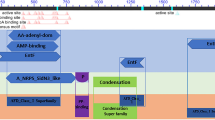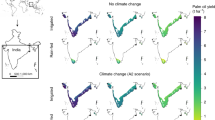Abstract
Oil palm is the second largest source of edible oil, which meets one-fifth of global demands of oils and fats. Expressed sequence tag (EST) sequencing programs have provided a wealth of information, identifying novel genes from a broad range of organisms and providing an indication of gene expression level in particular tissues. It also provides the richest source of biologically useful SNPs due to the relatively high redundancy of gene sequence, the diversity of genotypes represented within databases. EST based SNPs are potential molecular markers and aid in genetic improvement. A total of 21062 and 2053 polymorphic (SNP and Indel) sites in E. guineensis species and in E. oleifera, 4955 SNPs and 1172 Indels were detected. SNP(17.5/kbp) and Indel(4.1/kbp) frequency was higher in E. oleifera than E. guineensis species (16.8/kbp, 1.6/kbp). E. oleifera showed higher transition to transversion ratio (1.40) than in E. guineensis (1.02). The ratio of Ts vs Tv showed, the genetic divergence is occurring in this crops in different fashion and E. guineensis had diverged more than E. oleifera. We provide the results of the study as online database ("http://riju.byethost31.com/oilpalm/":http://riju.byethost31.com/oilpalm/) for use by oil palm breeders.
Similar content being viewed by others
Article PDF
Author information
Authors and Affiliations
Corresponding authors
Rights and permissions
About this article
Cite this article
Riju, A., Arunachalam, V. Interspecific differences in single nucleotide polymorphisms (SNPs) and indels in expressed sequence tag libraries of oil palm Elaeis guineensis and E. oleifera. Nat Prec (2009). https://doi.org/10.1038/npre.2009.3593.1
Received:
Accepted:
Published:
DOI: https://doi.org/10.1038/npre.2009.3593.1



